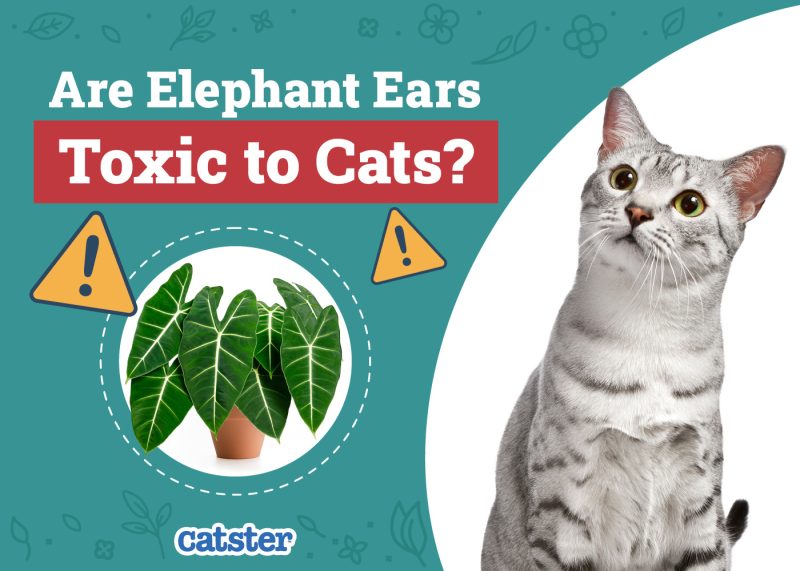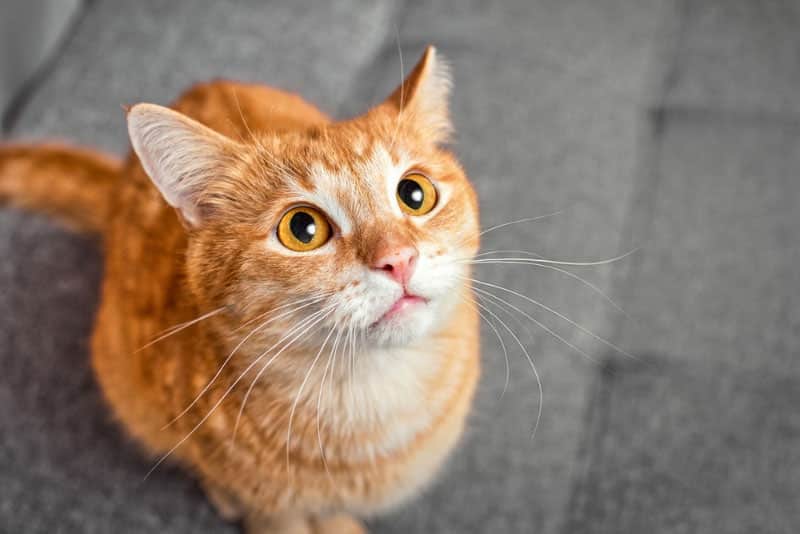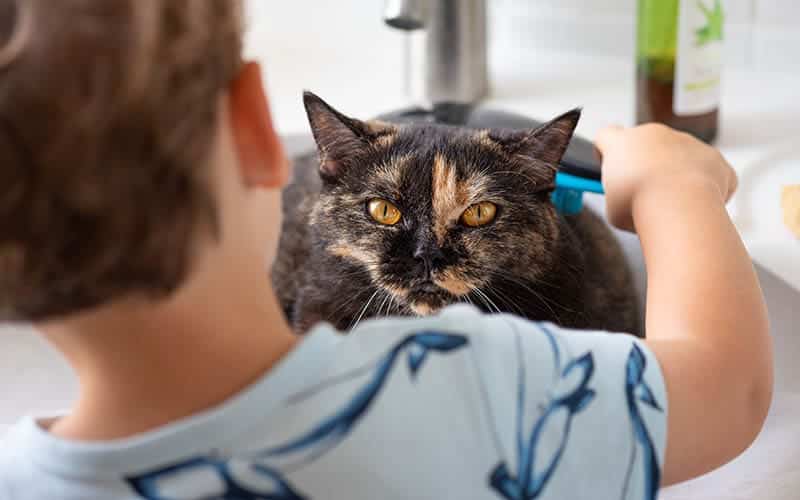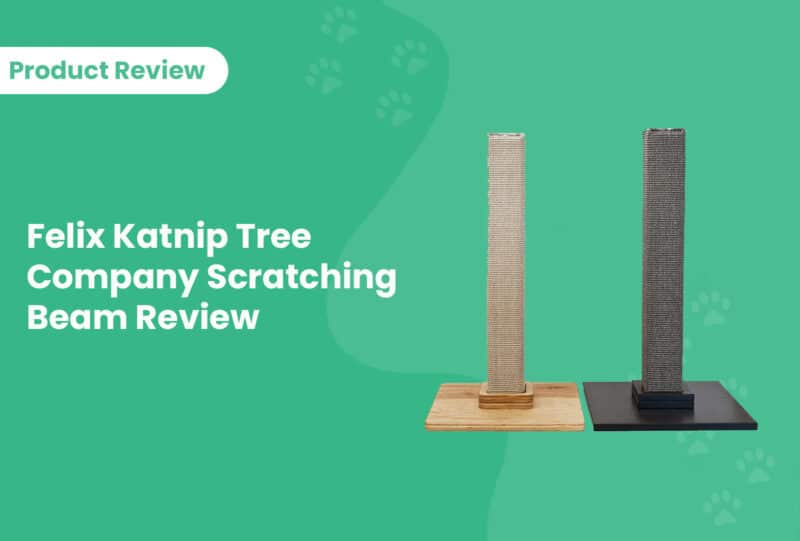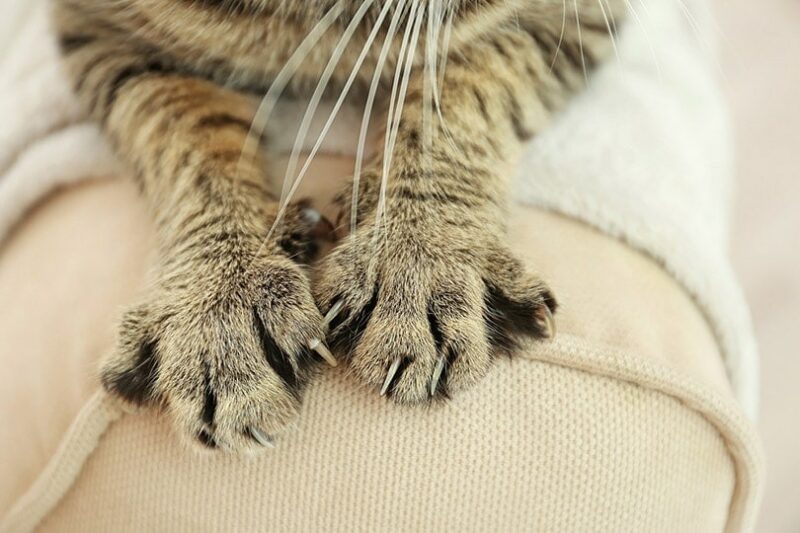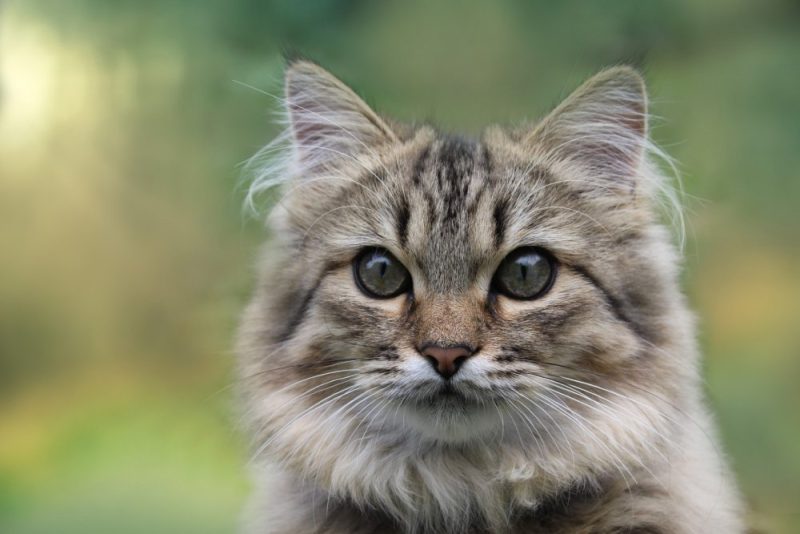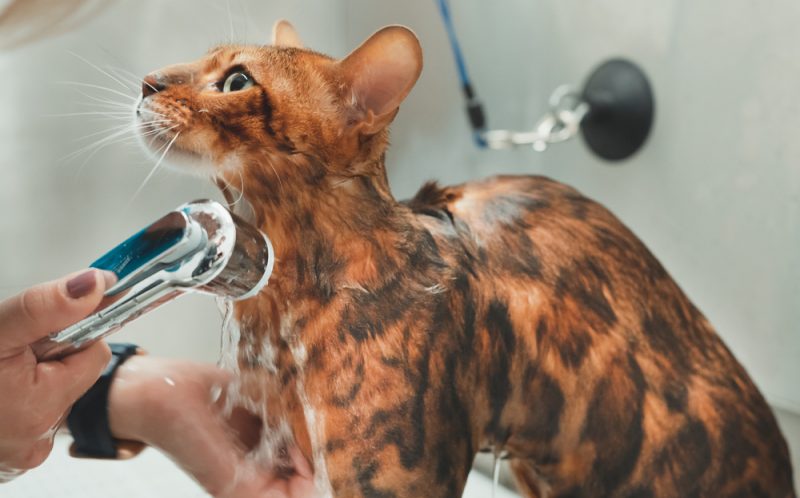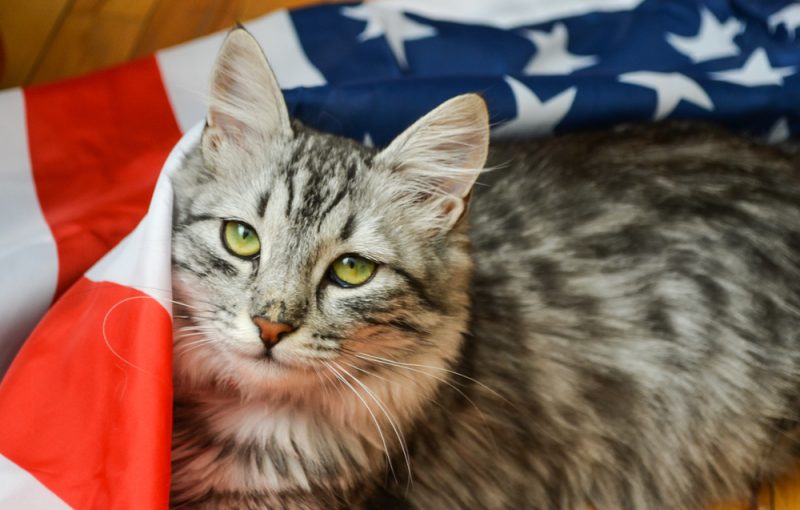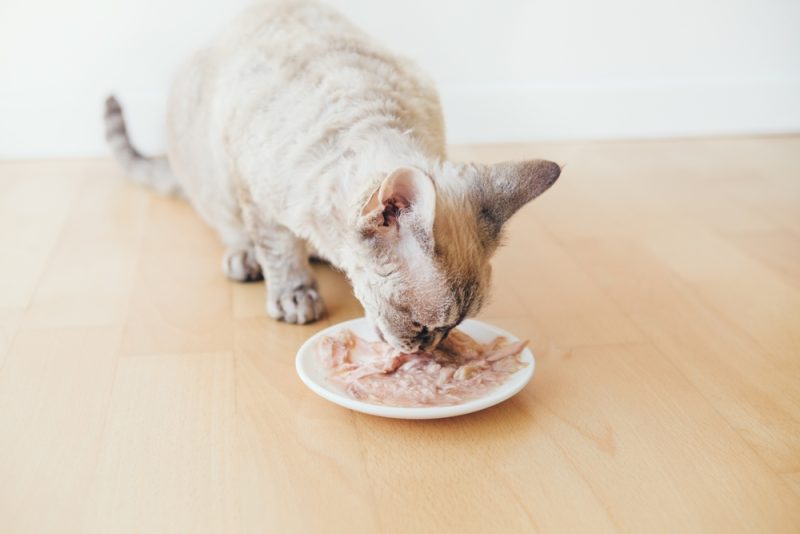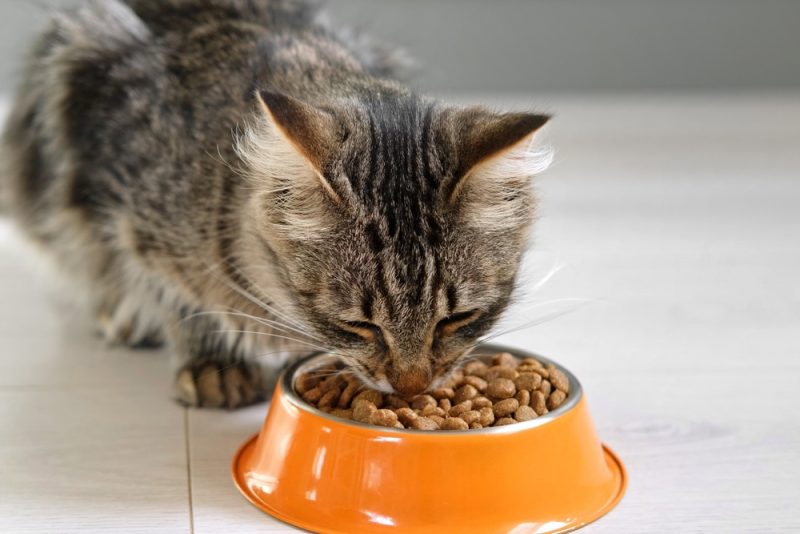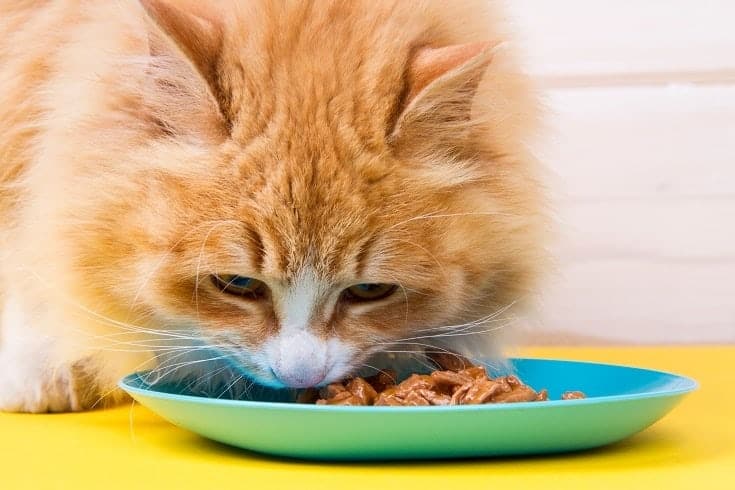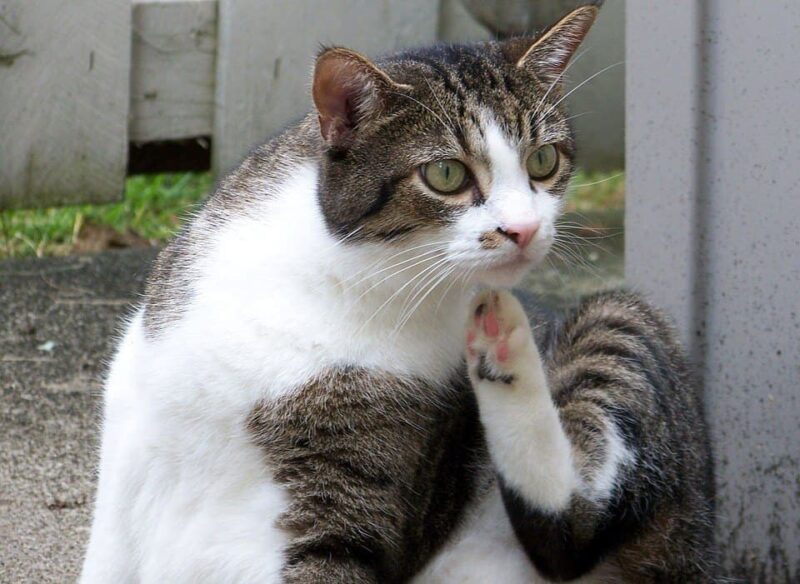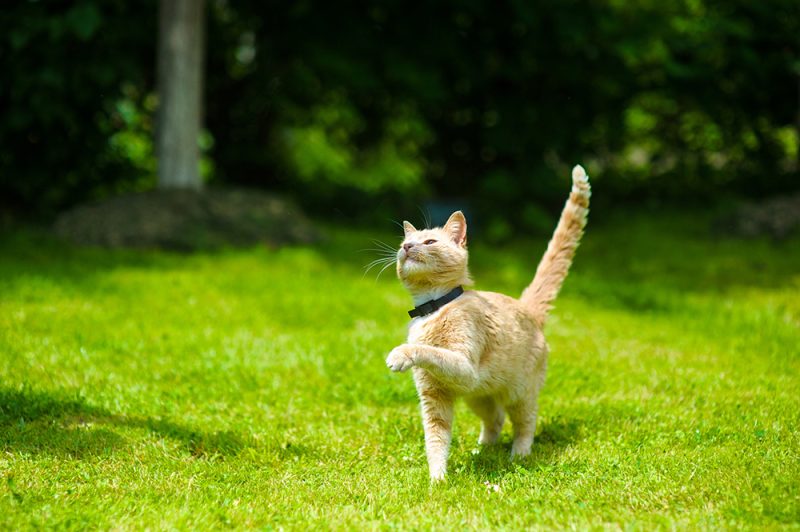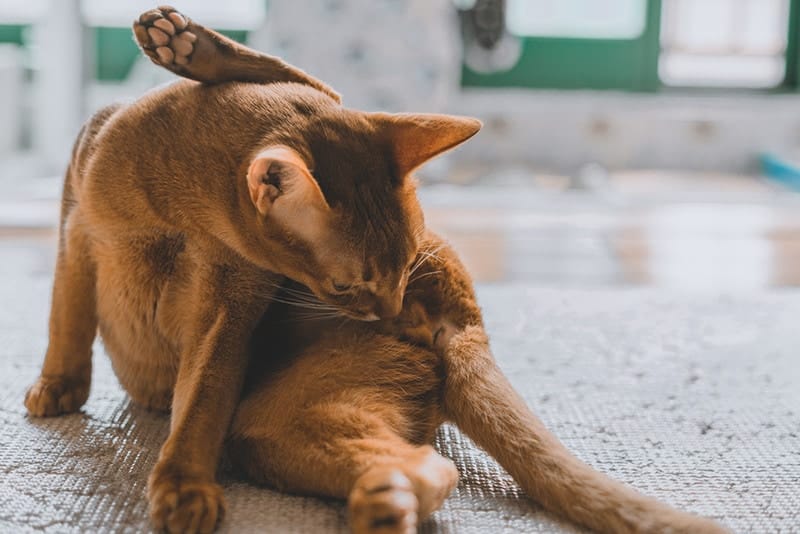You don’t need a green thumb for elephant ears (Alocasia) to thrive in your home. The plants only need indirect sunlight, moderate humidity, and weekly watering. An elephant ear’s large, two-toned leaves bring a hint of the tropics to any living space.
Pet owners should be aware that certain houseplants can make cats sick. Unfortunately, the American Society for the Prevention of Cruelty to Animals (ASPCA) identifies elephant ears as toxic to cats. You’ll need to call your veterinarian immediately if your cat eats one of these plants.

What Should I Do If My Cat Eats an Elephant Ear (Alocasia)?
It’s easy to panic when your kitty eats something they shouldn’t. First and foremost, don’t panic. Your cat needs you to stay calm and think clearly. Follow these steps if your cat eats an elephant ear or any other plant that is toxic for cats.
1. Remove Excess Plant Pieces
Brush any plant pieces off of your cat’s body. Remove any leaf or stem pieces if you can safely reach into your kitty’s mouth.
2. Find a Safe Place for Your Cat
Place your cat someplace secure, like their carrier or a smaller room. You don’t want them to run off or hide, as you’ll need to monitor them for symptoms.
3. Contact Your Vet
Call your veterinarian. Have a pen and paper handy, as you may need to write down instructions or other phone numbers.
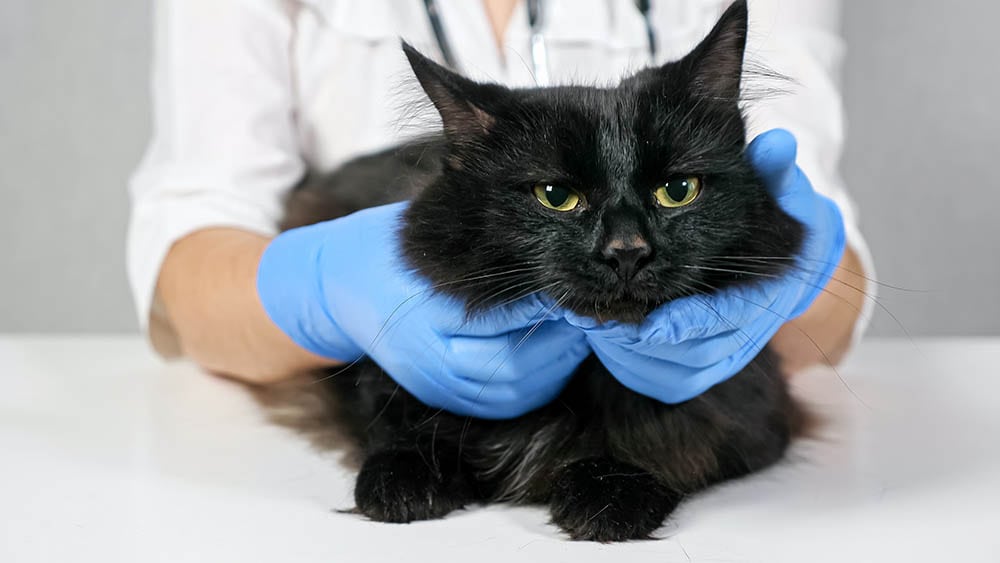
4. Collect Vomit Remains
If your cat vomits, try to save it and place it in a clean Ziploc bag. Your veterinarian may want to see the vomit.
5. Ask for Vet Advice
Follow your veterinarian’s advice on what to do next.
If you need to speak with a vet but can't get to one, head over to PangoVet. It's an online service where you can talk to a vet online and get the advice you need for your pet — all at an affordable price!


Can You Have Plants in a House With Cats?
There are several cat-safe houseplants you can use to decorate your home. The bamboo palm is non-toxic to both cats and dogs. While it has smaller leaves than an elephant ear, it does carry the same tropical vibe. If you want to add some color to your home, a copper rose (Echeveria multicaulis) is another non-toxic choice. This plant will brighten up any room with its rich red and orange tones.
While the bamboo palm and copper rose aren’t poisonous to cats, you still shouldn’t allow your cat to eat these plants. Even non-toxic plants can upset a kitty’s stomach, causing them to vomit or have diarrhea.

What Deters Cats from Eating House Plants?
You can try several tactics to keep your cat from destroying and eating the plants in your home.
Place Plants Out of Reach
Some cats won’t be able to reach plants that are hanging from the ceiling or on tall shelves. You can also place plants in a room that is off-limits to your pets. However, determined cats can be sneaky—and athletic! These ideas may not work for every kitty.
Distract with Toys
Your cat might play with your houseplants out of sheer boredom. Let’s face it; leaves are fun to swat at! Focus your cat’s attention toward an interactive treat-dispensing toy or laser pointer.
Try a Terrarium
Terrariums are like mini-greenhouses. The enclosed glass or plastic container will protect your plants from your pets. However, terrariums aren’t 100% cat-proof. An aggressive kitty could still knock the container to the floor and nibble on the plant.
Give Your Kitty Their Own Plant
Some cats have the irresistible urge to snack on plants. You can satisfy your hungry kitty with their very own pot of natural cat grass. They may leave your houseplants alone if they have their greenery to munch on.

Final Thoughts
The houseplant elephant ears are toxic to cats. Call your veterinarian right away if your kitty eats this plant. Many houseplants are poisonous to pets, so do your research before you bring any new plants into your home. Toys and other tactics may deter a curious cat from playing with and nibbling on your plants, but some kitties are relentless and will pursue plants that are out of reach.
Remember that cats are individuals. If you have a multi-cat household, one feline may relentlessly pursue your houseplants while another couldn’t care less. You can satisfy your cat’s need to nibble on greenery by providing a pot of edible cat grass or catnip.
Featured Image Credit by: Caseybrian12, Shutterstock
